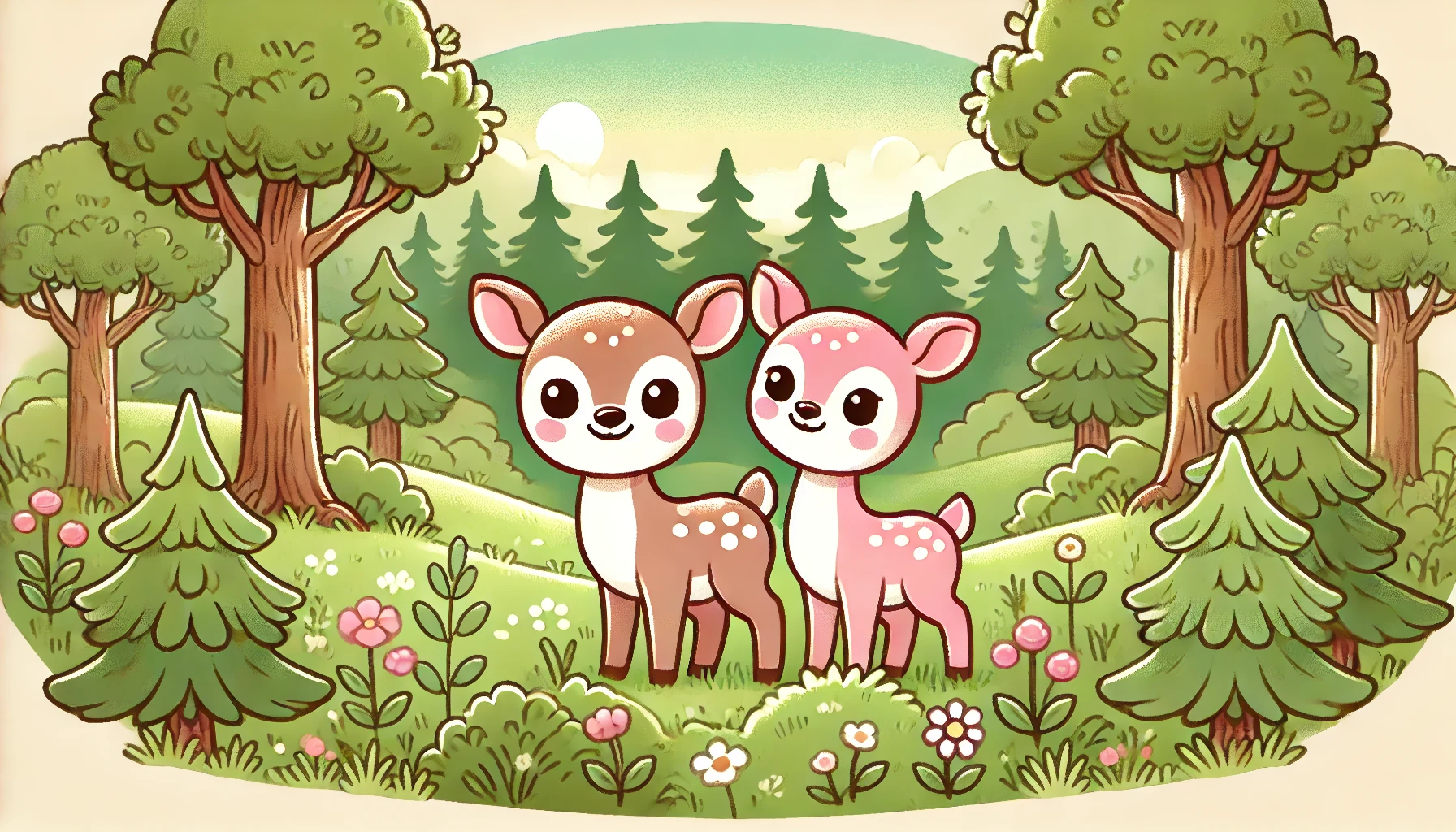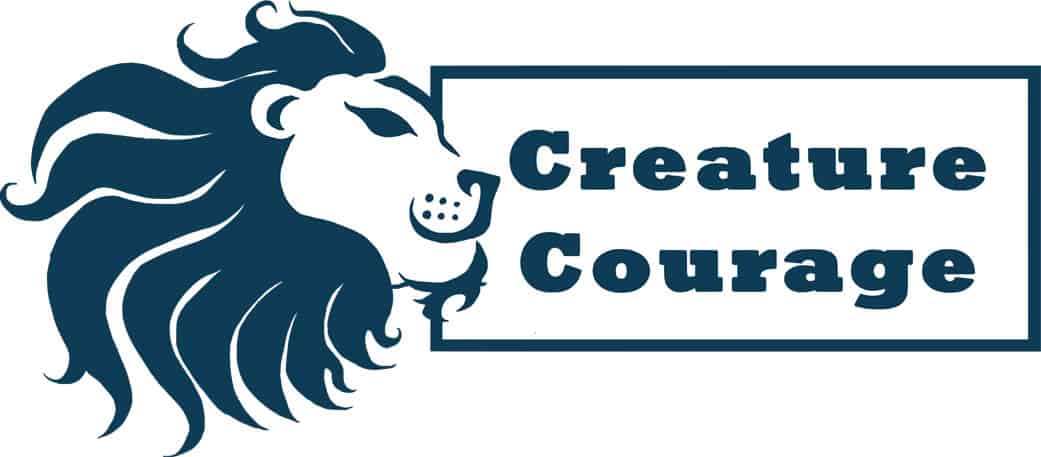The Fear of Deer: Elapiphobia

Elapiphobia, the fear of deer, is a specific phobia that can cause significant distress and anxiety for those affected. While deer are generally peaceful creatures, some individuals experience intense fear when encountering or even thinking about these graceful animals. To learn more about animal phobias, explore related insights and find out how Creature Courage can help you overcome your animal fears, read on and visit our comprehensive animal phobia page.
Understanding a Fear of Deer
Elapiphobia is a unique and often misunderstood phobia. People with this fear may experience:
- Rapid heartbeat and sweating when seeing deer
- Panic attacks in deer-populated areas
- Avoidance of forests, parks, or rural areas
- Nightmares or intrusive thoughts about deer
This fear can significantly impact a person’s quality of life, especially for those living in areas with large deer populations. It’s essential to note that certain health concerns like Chronic Wasting Disease in deer might influence public perceptions of deer, contributing to the phobia.
Causes of Deer Phobia
The origins of elapiphobia can vary from person to person. Some common causes include:
- Traumatic experiences with deer, such as car accidents
- Witnessing aggressive behavior from deer during mating season
- Cultural or familial influences that portray deer as dangerous
- Generalized anxiety that manifests as a specific fear of deer
Understanding the root cause of your fear is crucial for effective treatment.
Symptoms of Elapiphobia
Recognising the symptoms of elapiphobia is the first step toward managing this fear. Common symptoms include:
- Intense anxiety when seeing deer or deer-related imagery
- Physical reactions like trembling, nausea, or dizziness
- Irrational thoughts about deer attacks or harm
- Difficulty functioning in deer-populated areas
Creating Curiosity and Appreciation for Deer
To overcome fear, it’s helpful to cultivate curiosity about deer. Here are some fascinating aspects of deer behavior:
- Deer can rotate their ears independently to pinpoint sounds
- Some species of deer can delay giving birth for up to a month if conditions aren’t favorable
- Deer have excellent night vision, thanks to a reflective layer in their eyes
you experience these symptoms, it’s essential to seek professional help.
The Importance of Deer in Our Ecosystem
Understanding the vital role deer play in our ecosystem can help foster appreciation and reduce fear. Deer contribute to our world in several ways:
Ecological Roles
- Seed dispersal: Deer help spread plant seeds through their droppings
- Vegetation management: Their grazing habits help maintain forest understory
- Food source: Deer are a crucial part of the food chain for predators
Economic Benefits
- Hunting industry: Deer hunting contributes significantly to local economies
- Ecotourism: Deer-watching attracts nature enthusiasts, boosting tourism
Unique Services
- Biodiversity maintenance: Deer help maintain plant diversity in forests
- Nutrient cycling: Their droppings enrich soil, promoting plant growth
For detailed insights, the management of wild deer in Scotland offers a comprehensive perspective.
Historical Significance and Cultural Impact of Deer
Deer have played significant roles in various cultures throughout history:
- In Celtic mythology, deer were considered magical creatures
- Native American cultures often viewed deer as symbols of gentleness and grace
- In Hinduism, several deities are associated with deer, symbolizing peace and harmony
Treatment Options for the Fear of Deer
Fortunately, elapiphobia is treatable, and many people have successfully overcome their fear of deer. Effective treatment options include:
Cognitive Behavioural Therapy (CBT)
CBT is a widely used and effective treatment for phobias, including elapiphobia. This therapy helps you identify and change negative thought patterns related to deer.
Exposure Therapy
Gradual exposure to deer-related stimuli can help desensitize you to your fear. This may involve:
- Looking at pictures of deer
- Watching videos of deer in their natural habitat
- Visiting a petting zoo with deer
- Gradually approaching deer in a controlled environment
Medication
In some cases, anti-anxiety medications may be prescribed to help manage severe symptoms of elapiphobia. However, this is typically used in conjunction with therapy rather than as a standalone treatment.
Explore professional animal phobia therapy options to learn more about tailored approaches to treatment.
Self-Help Strategies for Managing Your Fear of Deer
While professional treatment is often necessary, there are several self-help techniques you can use to manage your fear of deer:
- Practice relaxation techniques like deep breathing and meditation
- Educate yourself about deer behavior and habits using deer behavior and welfare guidelines
- Join support groups for people with specific phobias
- Use visualization techniques to imagine positive interactions with deer
For additional advice, check out strategies for overcoming animal phobias.
Living with a Fear of Deer
While managing elapiphobia can be challenging, it’s important to remember that you’re not alone. Many people have successfully overcome their fear of deer and gone on to enjoy nature without anxiety. Read success stories from others for motivation and encouragement.
By seeking help, practicing self-care, and gradually exposing yourself to deer-related stimuli, you can manage your fear and reclaim your enjoyment of the outdoors.
Frequently Asked Questions
Is elapiphobia common?
While not as common as some other animal phobias, elapiphobia affects a significant number of people, especially in areas with large deer populations.
Can elapiphobia be cured?
While there’s no instant cure, elapiphobia can be effectively managed and often overcome with proper treatment and support.
Are deer actually dangerous?
Deer are generally peaceful animals, but they can become aggressive if they feel threatened, especially during mating season. However, unprovoked attacks on humans are rare.
How long does it take to overcome elapiphobia?
The time it takes to overcome elapiphobia varies from person to person. With consistent treatment, many people see significant improvement within a few months.
Can children develop elapiphobia?
Yes, children can develop elapiphobia, often due to a frightening experience or learned behaviour from adults.
Is it normal to be cautious around deer?
Being cautious around wild animals is normal and sensible. Elapiphobia becomes a problem when the fear is excessive and interferes with daily life.
Is it normal to be cautious around deer?
Being cautious around wild animals is normal and sensible. Elapiphobia becomes a problem when the fear is excessive and interferes with daily life.
Can virtual reality be used to treat elapiphobia?
Virtual reality exposure therapy is showing promise in treating various phobias, including animal phobias like elapiphobia.
Remember, if you’re struggling with elapiphobia, help is available. Don’t let the fear of deer hold you back from enjoying nature and living your life to the fullest. By understanding the importance of deer in our ecosystem and appreciating their unique characteristics, you can begin to transform your fear into fascination.
